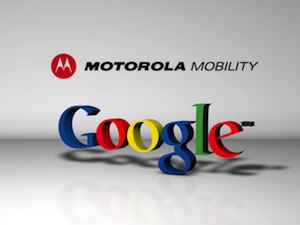Google's headache: After patents, what to do now with Motorola?

It's no longer about the patents, but the post-honeymoon period is giving Google one heck of a headache.

There's no doubt that Motorola Mobility's vast portfolio of 17,000 patents will stand Google in good stead over the ongoing litigation with Apple, but it's clear that other factors are now taking priority.
Google's move to shuffle up its dedicated smartphone-making unit should come as no surprise. "[Motorola Mobility] lost money in fourteen of the last sixteen quarters," says an 8-K filing with the U.S. Securities and Exchange Commission. Google also warned that investors should expect to see "significant revenue variability" from the company in the coming quarters.
In a nutshell, Motorola isn't turning a profit, and now Google has its patent treasure trove, it doesn't want to lose out in the long run.
Earlier this year, Google's executive chairman Eric Schmidt told investors that the Motorola sale was "...for the sum of patents, products, the people, and the innovation," in a move to push the press and investors away from thinking the sale was all about the patents.
Google chief executive Larry Page had a different take, ZDNet editor-in-chief Larry Dignan wrote earlier this year:
If you consider that Google was going to pay nearly $4 billion for Nortel's 6,000 wireless patents, $12.5 billion for Motorola Mobility doesn't look like a big chunk of change. With Motorola Mobility's patents, Google can fend off lawsuits. In other words, Google builds out its patent portfolio.
Yeah, it was about the patents. But now it's not, and Google has to ruffle some features and shuffle Motorola Mobility in order for it to generate profit in the long term.
Motorola Mobility's first-quarter earnings showed a loss of $86 million, more than its $81 million loss in the same quarter a year ago.
To make matters worse, the 8-K filing says:
"Google expects to incur a severance-related charge of no greater than $275 million, which it believes will be largely recognized in the third quarter, with the remaining severance-related costs recognized by the end of 2012."
That's close to four-times the loss it made in the first quarter. The search giant warns that "Although [Google] cannot currently predict the amount of these other charges at this time, these additional charges could be significant."
In other words: it's going to get worse for Google before it gets better.
Perhaps at first, Motorola Mobility looked like a perfectly valid buy for the patents, but now it isn't. The aftershock of buying the profit-losing company is taking its toll on Google. There's little point in having a company that doesn't turn a profit, so in doing so, Google has wiped the patent factor off the sale and is now focusing on the business itself.
Whether or not the patents were a bonus or a primary reason to buy Motorola, it doesn't matter. What Google has left is a vast number of patents it can fire back at Apple et al with, and a smartphone-making unit it can revamp and target the general consumer market, and the BYOD enterprise culture with.
The plan is for Google to "shift the emphasis from feature phones to more innovative and profitable devices." Cut away the fat from the lower-end devices it ships out and concentrate its efforts on fewer, more profitable phones -- like... Apple? Ring any bells?
Patents first, the rest after. For Google, despite Motorola Mobility's problems, it's still a good buy for the price it bought it at.